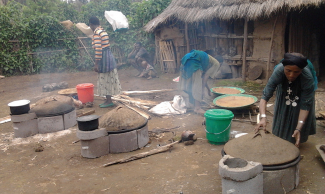Households and tree-planting for wood energy production – Do perceptions matter?
While forests are a primary source of energy for the majority of Tanzanian households, the forest cover is rapidly declining. The Tanzanian government has introduced a tree-planting campaign strategy, aimed at reducing pressure on natural forests.

